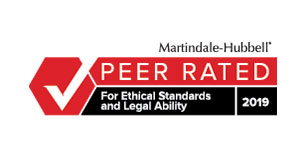Anyone can develop a hernia, and most hernias in the United States get treated with a surgical mesh implant. However, there are some circumstances in which hernia mesh is defective and can actually worsen a person’s medical problems — or cause new issues that require additional surgeries.
How can you tell if you have defective hernia mesh? Below are a few of the most common symptoms:
- Pain and discomfort: As you recover from your hernia, you’ll likely deal with some degree of pain and discomfort, especially early in your recovery process. However, if you notice painful sensations that are unusual or severe, you should speak with your doctor. Look for bruising, swelling or skin rashes near the incision. Depending on the kind of hernia you had, that pain could occur near the abdomen, stomach, leg, groin or testicle.
- Infections: Chronic infections are another common symptom of defective hernia mesh. These infections could become severe and cause redness and heat to emanate from the affected area. There’s also an increased risk of seroma, which is a buildup of fluids near the site of the mesh.
- Recurrence of hernias: When used correctly, hernia mesh makes a recurrence of hernias less likely. However, problems associated with your hernia mesh, such as adhesion, perforation and migration, could make it more likely you will suffer a hernia again.
- Obstructed bowels: Defective hernia mesh can occasionally cause bowel obstructions, which are blockages in the small or large intestine that make it difficult to urinate or defecate. If, for example, scar tissue or parts of the intestines adhere to the mesh, this could cause some considerable problems.
If you have experienced additional health issues due to defective hernia mesh, you may be able to seek compensation. Consult an experienced West Virginia personal injury attorney at Prim Law Firm, PLLC to learn more about your legal options. Call 304-201-2425 or contact us online to schedule your free initial consultation.



